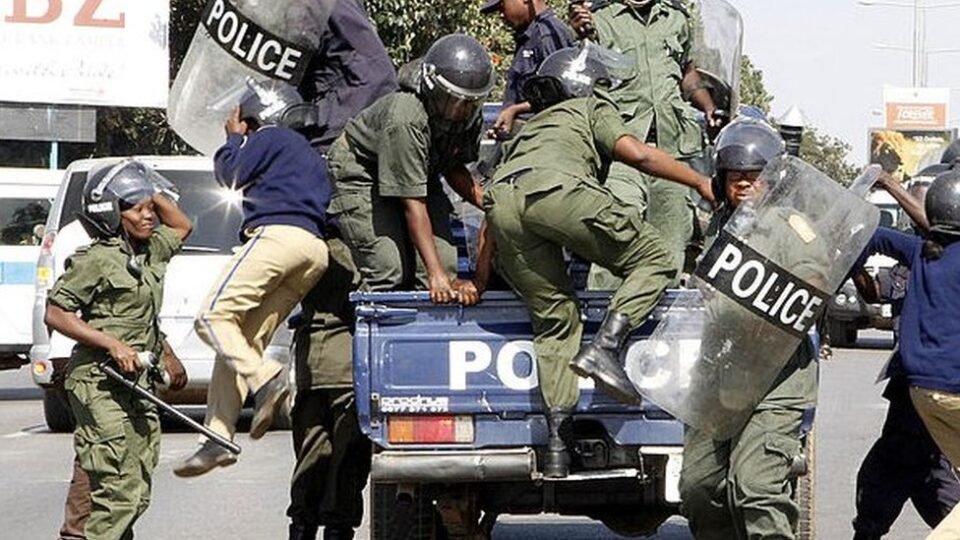A Zambian officer releases 13 inmates held on various charges to celebrate the New Year, according to a statement by the country’s police authorities.
The officer, identified as Inspector Titus Phiri, was arrested after freeing the detainees from Leonard Cheelo Police Station in Zambia’s capital, Lusaka. These individuals, facing charges ranging from assault, theft, and unlawful entry to other offenses, escaped custody. A manhunt was launched to recapture them, but not all have been apprehended yet.
Reports state that the officer, visibly drunk, unlocked the male detention cells and instructed the inmates to leave, claiming they had the right to join in the New Year celebrations. Among the 15 detainees in the cell, 13 took the opportunity to flee. The officer himself attempted to escape the station but was promptly detained. Zambian Officer Releases 13 Inmates in New Year Incident.
Police spokesperson Rae Hamoonga revealed that Inspector Phiri forcibly obtained the cell keys from a lower-ranking officer, Constable Serah Banda, who was on duty during the incident. “After gaining access, Inspector Phiri opened the cell and ordered the inmates to leave, stating they deserved to celebrate the New Year. Out of 15 detainees, 13 escaped. The officer then fled but was quickly apprehended,” said Hamoonga.
Phiri has not commented on the allegations
The incident sparked discussion online, with Dickson Jere, a former presidential spokesperson and lawyer, sharing his thoughts on Facebook. “I can’t help but laugh when I think about what happened. It’s almost comical! But it also reminds me of a similar event in 1997,” he wrote.
Jere recounted a case from 1997 when Kabazo Chanda, a controversial High Court judge, ordered the release of 53 detainees on New Year’s Day. These individuals, deemed dangerous by the police, had been in custody since 1992 without trial. The judge, frustrated by the prolonged detentions, cited the legal principle: “Justice delayed is justice denied.”
This recent event raises questions about police conduct and the administration of justice, leaving Zambians reflecting on its broader implications.

